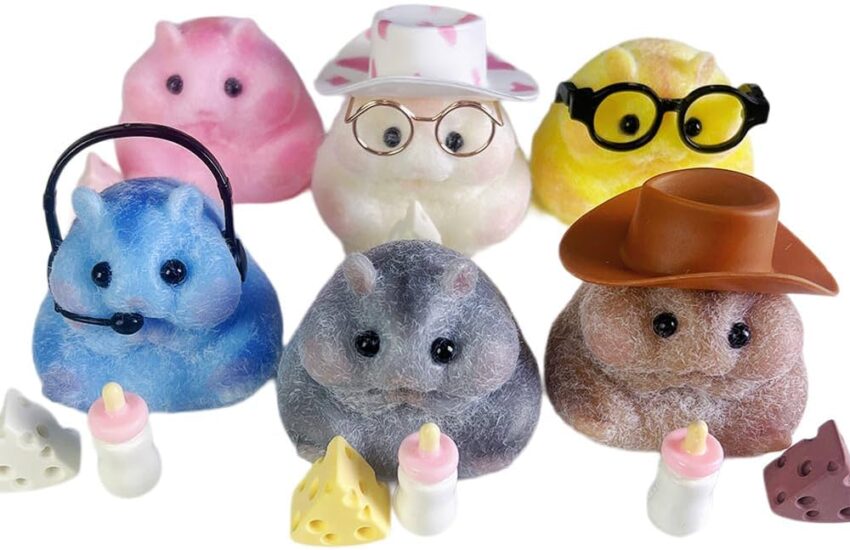Top Family Hamsters for Emotional Support
In today’s fast-paced and often stressful world, many families are discovering the emotional benefits of having a pet. Among the various options available, hamsters stand out as excellent emotional support companions. They are not only adorable and entertaining but also relatively easy to care for, making them perfect for families. This article explores the top family hamsters that can provide emotional support, touching on their unique qualities, care requirements, and the benefits they bring into a home.
Why Choose a Hamster for Emotional Support?
Hamsters have become increasingly popular as family pets due to their small size, low maintenance, and ability to bond with their owners. Here are a few reasons why they can be ideal for families seeking emotional support:
- Companionship: Hamsters can offer companionship to both children and adults. Their playful nature can uplift the spirits of family members.
- Stress Relief: Interacting with a pet has been shown to reduce stress and anxiety, and watching hamsters play can provide a calming effect.
- Teach Responsibility: Caring for a hamster can help children learn responsibility, empathy, and the importance of caring for a living being.
This article will guide you through some of the most suitable hamster breeds for families, alongside practical tips for care and maintaining a strong emotional bond.
Types of Family Hamsters to Consider
While there are several breeds of hamsters, not all are ideally suited for families. Here’s a closer look at the most recommended types for emotional support:
1. Syrian Hamster
The Syrian hamster, also known as the golden hamster, is the most common pet hamster. They are known for their friendly nature and can adapt well to human interaction.
- Size: Syrian hamsters can grow up to 6 inches long, making them suitable for handling.
- Temperament: They are generally friendly and easy to tame, making them great companions.
- Living Space: They require a larger cage with plenty of enrichment activities to keep them active.
2. Dwarf Hamster
Dwarf hamsters are smaller than Syrian hamsters and include breeds like the Roborovski and Campbell’s dwarf. They are quite social and can be kept in pairs or small groups.
- Social Behavior: Dwarfs can be quite active and playful, often bringing joy to families.
- Size: They are typically around 3-4 inches long, making them easy for little hands to hold.
- Minimal Space: They can thrive in smaller habitats compared to their Syrian counterparts.
3. Chinese Hamster
Less common but equally charming, Chinese hamsters exhibit a slightly different temperament. They are known for their long tails and curious nature.
- Unique Look: Their appearance is distinctive with a longer body and tail.
- Behavior: They can be quite friendly but may be more reserved than other breeds, requiring gentle handling.
- Compatibility: They are best kept alone as they can be territorial.
Caring for Your Hamster
To ensure your hamster thrives and provides the emotional support you seek, proper care is essential. Here’s what to consider:
Housing Requirements
A comfortable cage is paramount. Ensure it is spacious, well-ventilated, and equipped with plenty of hiding spaces and enrichment activities like tunnels and wheels.
Diet and Nutrition
Providing a balanced diet is crucial. Commercial hamster food should be supplemented with fresh fruits and vegetables. Avoid sugary and fatty treats.
Regular Interaction
To develop a bond with your hamster, ensure daily interaction. Handle them gently and encourage playtime outside their cage for mental stimulation.
Benefits of Hamsters for Emotional Support
Having a hamster in the family can yield numerous emotional benefits. Here are some of the key advantages:
- Joy and Laughter: Hamsters are known for their quirky behaviors which can bring laughter and joy to your home.
- Routine and Structure: Caring for a hamster creates a daily routine that can provide structure, especially for children.
- Unconditional Love: The bond formed with a pet can be a source of unconditional love and comfort, helping to ease feelings of loneliness.
Conclusion
In conclusion, hamsters are more than just pets—they can be valuable emotional support companions for families. Their cheerful demeanor, combined with the effort required for their care, fosters a strong bond that can uplift any household. Whether you opt for a friendly Syrian hamster, a playful dwarf, or the unique Chinese breed, you’re sure to find joy and companionship with these delightful creatures.
Investing time in understanding your hamster’s needs will ensure a fulfilling relationship that maximizes the emotional support they can provide. If you are considering adding a hamster to your family, remember that they thrive on care, love, and interaction. Explore more about hamster care and tips on the Happy Birthday Images website or check their insights on family-friendly topics.

